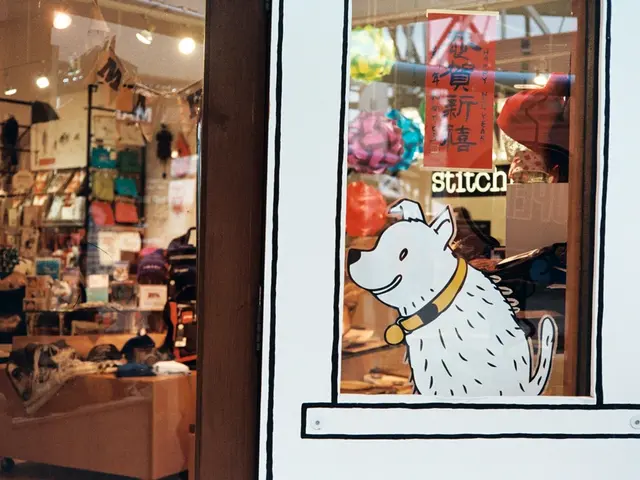Pope Leo XIV recognized by Time magazine as a 'religious balance' to the tech giants of Silicon Valley
The international editor for the website is Paulina Guzik (follow her on X @Guzik_Paulina). Sarah Mac Donald contributed to this report.
In a significant move, Pope Leo XIV, the head of the Catholic Church with 1.4 billion believers, has been named to Time magazine's "Time 100 AI" list for 2025. This annual list recognizes individuals who are shaping the way humanity confronts artificial intelligence (AI).
The commitment to have a conversation about AI involves various Vatican departments, including the Pontifical Academy for Life, the Pontifical Academy of Social Sciences, and the Dicastery for Culture and Education. Under Pope Leo, the dialogue with tech companies has been intensifying, and an element of trust has emerged that allows for a more open dialogue.
The "Time 100 AI" list for 2025 includes tech CEOs, lawmakers, researchers, artists, and others who create, use, research, and flag issues about AI. Pope Leo XIV's inclusion on the list underscores his active role in shaping the discourse surrounding AI.
The list was launched in 2023, following the release of ChatGPT, which highlighted AI's potential to compete with and exceed human capabilities. Since his election in May 2025, Pope Leo has publicly spoken about AI, emphasizing unity, peace, and ethical guidance around technology.
During a June convening on AI, ethics, and corporate governance, Pope Leo underlined AI's potential as a force for good, particularly in health care and scientific discovery. However, he also warned that AI could be misused for selfish gain or to foment conflict and aggression.
Bishop Paul Tighe, a top official at the Vatican's Dicastery for Culture and Education, has warned about the hidden environmental costs, impact on jobs, and broader social risks of artificial intelligence. AI and the social issues it raises will be a priority for Pope Leo, according to Bishop Tighe.
Pope Leo sees artificial intelligence as having immense potential but stresses the need for responsibility and insight to ensure it benefits all humanity, protecting human dignity, justice, and work. He positions the Catholic Church as offering its social teaching as a response to the challenges posed by AI's rapid development, similar to addressing the industrial revolution in the past.
The aim of the "Time 100 AI" list is to show how the direction of AI will be determined by people, not machines. Pope Leo has emphasized the importance of engaging with AI, linking his choice of name to "Rerum Novarum" and stating that reading the signs of the times requires this engagement.
Following in the footsteps of Leo XIII, who served during the Industrial Revolution, Time magazine states that Pope Leo's name choice is a tribute to him. Under Pope Francis, the Vatican had pushed for a binding international treaty on artificial intelligence, causing tech CEOs to respond defensively. However, under Pope Leo, the relationship between the Vatican and tech companies seems to have improved, allowing for a more productive dialogue.
In conclusion, Pope Leo XIV's inclusion on the "Time 100 AI" list signifies a significant step in the Catholic Church's engagement with artificial intelligence. His emphasis on responsible use, ethical guidance, and the importance of engaging with AI sets a precedent for other leaders to follow in addressing the challenges and opportunities presented by this rapidly evolving technology.
Read also:
- Peptide YY (PYY): Exploring its Role in Appetite Suppression, Intestinal Health, and Cognitive Links
- Aspergillosis: Recognizing Symptoms, Treatment Methods, and Knowing When Medical Attention is Required
- Nighttime Gas Issues Explained (and Solutions Provided)
- Home Remedies, Advice, and Prevention Strategies for Addressing Acute Gastroenteritis at Home






